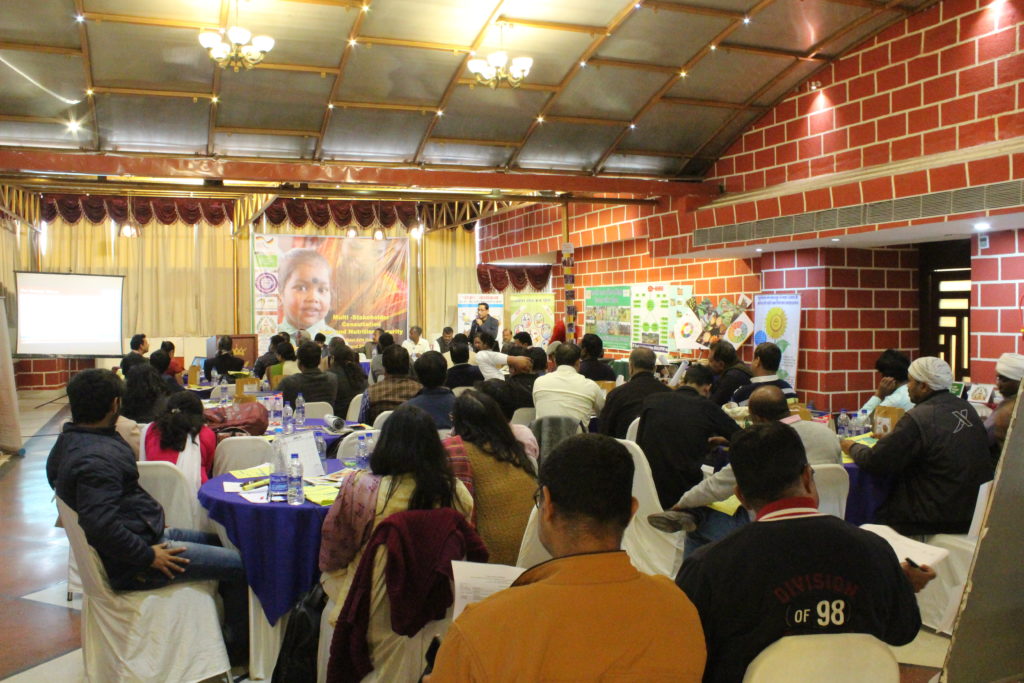
Food security is not only about the quantity of food which we consume, but it is also about the quality and diversity of nutritious food at all times to meet the dietary need to lead a healthy life. Nutrition insecurity aggravates to the deaths of almost 10 million people each year and affects one billion people’s health. Malnutrition, often called the hidden hunger can lead to life-threatening illnesses.
Traditionally, nutrition security has been viewed as the monarchy of health professionals. Yet the nutrition challenge cannot be solved solely by the health sector. Farmers are the first nutrient providers and the entire agri-food chain has a vital role to play. Continued focus on improving agricultural productivity is an important precondition in realising food security goals including nutrition security.
Climate Adaptive Agriculture and Food Sovereignty is one of the major themes selected by Caritas India to contribute towards Sustainable Development Goal 1 to ‘End Hunger’. The pan India coverage of Caritas India gives her the advantageous opportunity to work with the small and marginal farmers to increase their production and health.
Welthungerhilfe, one of Germany’s biggest private organizations for the development and humanitarian aid invited Caritas India to discuss the importance of Nutrition and Agriculture and the role of integrated farming system, family farming to ensure adequate nutrition to the farm families.
Agriculture plays a critical role in providing nutritious food, health and addressing the underlying causes of malnutrition. Agriculture and nutrition share a common entry point “Food” a key outcome of agricultural activities, and in turn, is a key input to good nutrition.